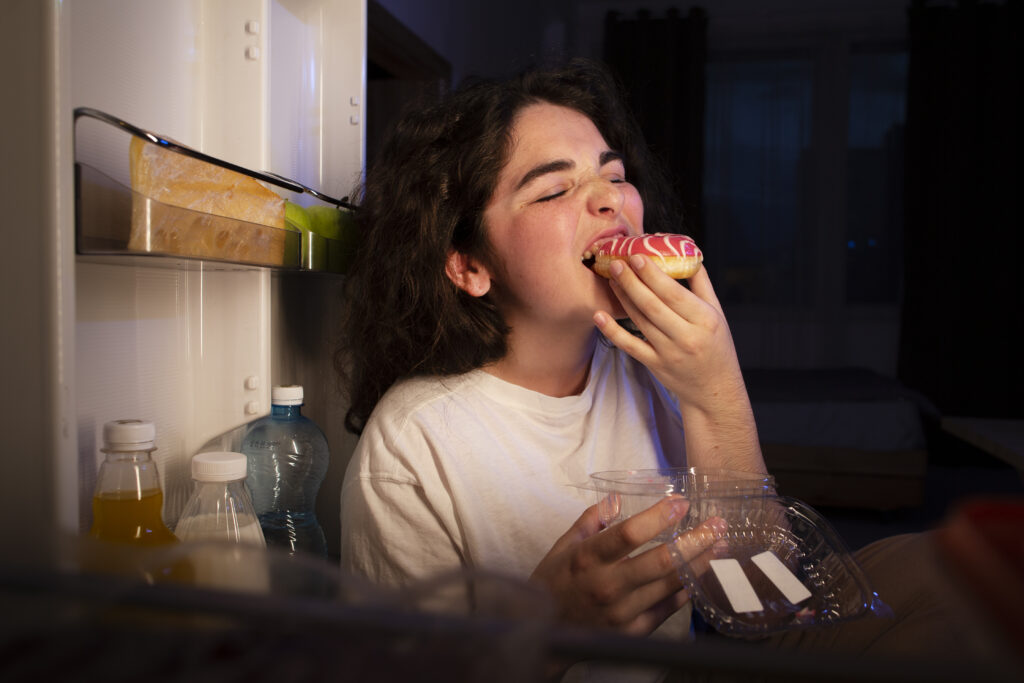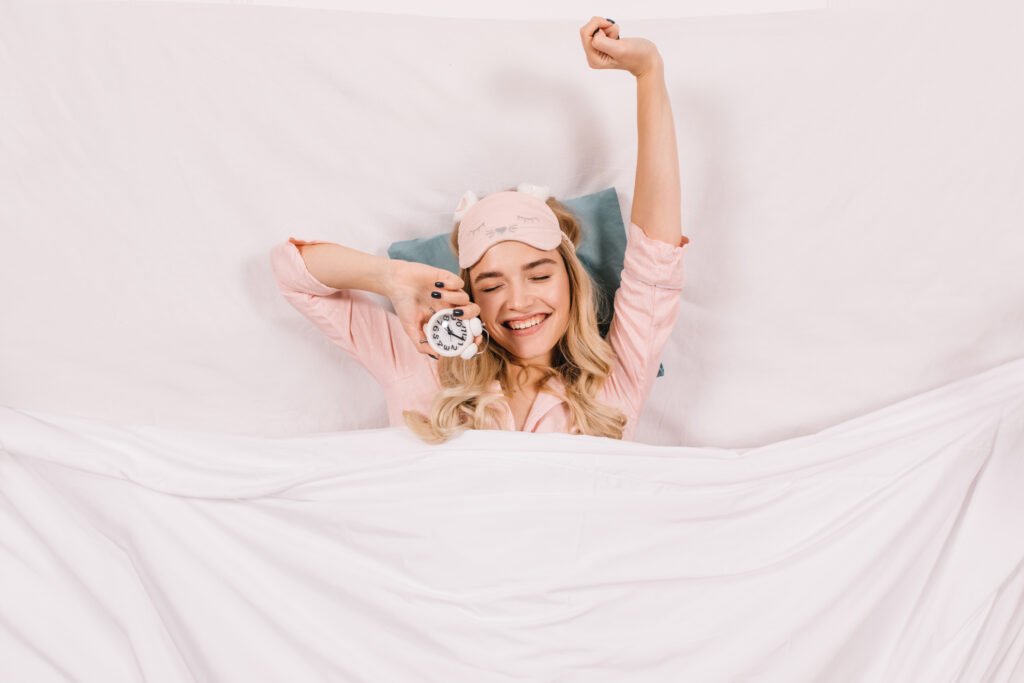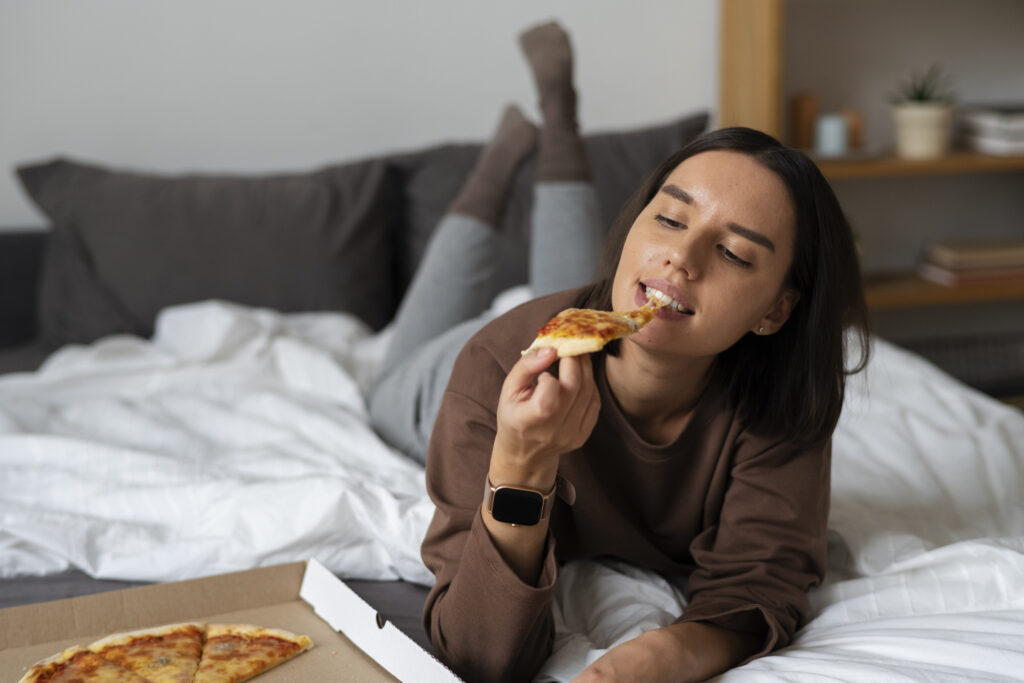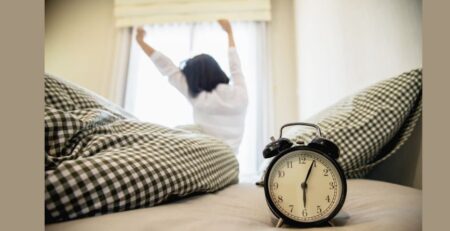Sweet Dreams or Sweet Treats? The Number 1 Reason Why Sleep Affects Your Food Cravings
Have you ever noticed that after a poor night’s sleep, you’re suddenly craving something sweet or salty? You’re not alone—and it’s not about lacking willpower. Through my years of working with people globally, one thing is clear: sleep isn’t just about feeling rested. This fundamental pillar of lifestyle is deeply tied to what, how, and even when we have food cravings.
Sleep deprivation is powerful enough to disrupt your body’s natural signals, nudging you toward certain foods, especially those high in sugar and fat. Research by the National Center for Biotechnology Information (NCBI) consistently supports this—several studies from respected sources reveal that poor sleep quality can disrupt our metabolism and influence food choices. In other words, sleep plays a pivotal role in overall wellness and, surprisingly, in how we manage our food cravings.
When you understand the connection between sleep and appetite, sleep itself can become a tool to support your wellness journey. After all, it’s not just about what we eat; it’s about how well we sleep.
With this awareness, we can take practical steps to balance our food cravings and work with our bodies rather than against them.
The Science of Sleep and Hunger Hormones
We often underestimate how deeply our hormones influence our eating habits, but when it comes to unhealthy food cravings, two key players are ghrelin and leptin. Think of them as your body’s built-in hunger signals. Ghrelin is the hormone that says, “I’m hungry, fuel me,” while leptin tells us, “You’re full, you can stop eating now.” When we’re well-rested, these two work beautifully in sync.
But lose a few hours of sleep, and things quickly go off balance.

Research from sources like PubMed and NCBI has shown that sleep deprivation triggers an increase in ghrelin production. In other words, when you’re low on sleep, your body’s hunger signals get louder. At the same time, leptin levels drop, which means the “stop eating” signal isn’t as strong.
This hormonal imbalance explains why, after a night of poor sleep, you might find yourself craving extra greasy foods for breakfast or reaching for snacks throughout the day, even if you’re not truly hungry.
“Your hormones are listening to your lifestyle – what message are you sending?”
- Luke Coutinho
There’s also cortisol, the stress hormone, which rises with sleep deprivation and encourages cravings, especially for comfort foods that are high in sugar and fat. It’s our body’s way of seeking quick energy and soothing stress. Studies even show that chronic sleep loss keeps cortisol elevated, creating a cycle where stress and food cravings feed off each other.
The key takeaway?

Getting consistent, quality sleep keeps ghrelin, leptin, and cortisol in balance. By supporting these hormones, we set ourselves up for a day where we can respond to hunger cues naturally, prevent impulsive eating, and manage food cravings more effectively.
Brain Chemistry and Food Cravings: How Sleep Affects Decision-Making
We’ve all had those days—after a rough night, our food choices seem a bit questionable. That’s not a coincidence, there’s a scientific reason for it.
Sleep deprivation doesn’t just mess with hormones; it impacts our brain’s decision-making center too. The prefrontal cortex—the part of the brain responsible for rational thinking, self-control, and planning—becomes less effective when we’re short on sleep. This is why, after a sleepless night, we’re more likely to reach for easy, satisfying options like chips, sweets, or that extra-large latte, rather than making balanced, mindful choices.
What’s more, lack of sleep activates the amygdala, a primitive part of the brain tied to survival instincts. It also can give you a hard time regulating your nervous system.
According to studies from sources like Healthline and NCBI, when sleep-deprived, our amygdala becomes extra sensitive to high-calorie, high-sugar foods, interpreting them as essential for survival. This reaction explains why, when you’re running on little sleep, that donut might look irresistibly appealing.
Your brain is essentially in “survival mode,” urging you to go for calorie-dense foods as a quick source of energy.
Good sleep is like good nutrition; without it, our bodies just don’t function optimally.
Understanding how our brain chemistry shifts under sleep deprivation gives us powerful insight into our eating habits. With this awareness, we can prioritize sleep as an essential part of managing food cravings, so we’re better equipped to make decisions aligned with our health goals.
Reframe Your Food Cravings: Listen to Your Body’s Signals
Cravings aren’t always about hunger—they often signal deeper emotional or nutritional needs. Studies by PubMed suggest that our food cravings can reflect a need for certain nutrients or be a response to emotional triggers. By practicing body awareness, we can begin to decode these signals and respond in a way that truly supports our health.
For instance, cravings for sweets may sometimes reflect low energy or the body’s need for a quick boost, while salty cravings can point to stress or mineral deficiencies. Tuning in helps us respond thoughtfully, turning cravings from something “bad” into an opportunity to nourish ourselves.
How to Reframe Cravings
- Identify the Underlying Need: Reflect on whether you’re feeling tired, stressed, or in need of comfort.
When cravings hit, ask yourself – “is it hunger, habit, or simply lack of rest?”
- Choose a Supportive Response: Rather than automatically reaching for a snack, consider alternatives that address the true need—like rest, hydration, or a healthy, nutrient-dense food.
When you’re craving junk foods, ask yourself, “Are you so hungry that you would even eat an apple or are you only hungry for that pack of chips?” This can help you explain to your brain that every hunger signal is not a physical sign, but also could be an emotional response.

By learning to interpret these cues accurately, you align with your body’s natural rhythms, setting the stage for wellness and balanced eating habits.
The Vicious Cycle: Poor Sleep, Poor Diet, and Health Risks
When we’re running low on sleep and high on cravings, it’s all too easy to fall into a cycle that can negatively impact our health. Studies from PubMed reveal that sleep loss disrupts our metabolic balance, increasing cravings for high-calorie, quick-energy foods. Combine this with poor dietary habits, and we open the door to weight gain and higher risks of metabolic issues like Type 2 diabetes and heart disease.
Metabolic Consequences
Sleep deprivation doesn’t just make us tired; it throws off our metabolism, creating an environment where it’s harder to make healthy choices. This cycle of poor sleep and poor diet can quickly snowball, affecting everything from insulin sensitivity to inflammation levels, further deepening cravings and impacting our long-term health.
Breaking the Cycle: Practical Steps to Improve Sleep and Manage Cravings
Taking control of sleep and cravings starts with small but powerful adjustments. Here are some evidence-backed steps to set your body and mind on the right track:
1. Consistent Sleep Routine
Studies have shown that maintaining a regular sleep schedule helps regulate our circadian rhythm and balance our hunger hormones. Aim to go to bed and wake up around the same time each day, allowing your body to create a rhythm that supports hormonal balance and better food choices.
Want a jumpstart to work on better?
Try this 14-day challenge to reset your circadian rhythm and achieve better health!
2. Wholesome, Balanced Dinners
A nutrient-dense meal in the evening can help stabilize blood sugar, reducing the chances of waking up hungry or craving a midnight snack. Foods rich in protein, fiber, and healthy fats keep you full longer and help regulate blood sugar through the night.

A study by Healthline shows that balanced meals help reduce blood sugar fluctuations, a common trigger for nighttime cravings.
3. Reducing Screen Time Before Bed
Blue light from screens disrupts melatonin production, making it harder to wind down. Research suggests that limiting screen exposure one to two hours before bed can help your body transition more smoothly into sleep mode.
4. Mindful Carbohydrate Timing
Carbohydrates have a powerful effect on cravings and energy levels. Avoid heavy carb-loaded snacks in the evening, which can spike cravings and disrupt sleep. Instead, consider spacing carbohydrates earlier in the day to manage hunger and blood sugar more effectively.
Expert Tips for Sleep and Cravings
For those looking to go deeper, here are expert strategies that can make a real difference in sleep quality and craving control:
Nutrition for Sleep Support
- Magnesium-rich foods like leafy greens, nuts, and seeds, along with melatonin-boosting foods like cherries and oats, can be valuable additions to your dinner or evening snack. Nutrition Research supports that these nutrients help improve sleep quality and promote relaxation, helping you wake up refreshed and balanced.
Stress Management Techniques
- Incorporating gentle stretching, deep breathing, and mindfulness exercises into your evening routine can help release cortisol and support restful sleep. Studies by the Journal of Alternative and Complementary Medicine reveal that stress management can lower cortisol levels, enhancing sleep quality and reducing emotional or stress-induced cravings.
Struggling with chronic or uncontrolled stressors? It is essential to address the root cause, which can help you live a more enriching life. This is where the expert help and guidance proves invaluable.
Final Word: Make Quality Sleep a Non-Negotiable for Lifelong Health
Sleep is a cornerstone of health, affecting everything from our cravings to our ability to make sound decisions and maintain emotional balance. Quality sleep isn’t just a nightly ritual; it’s a vital element of wellness and disease prevention that should be prioritized alongside nutrition and exercise.
When we make sleep non-negotiable, we’re not only managing cravings more effectively—we’re also supporting mental clarity, emotional resilience, and overall longevity. So, let’s commit to a better sleep routine as a foundational step towards a healthier, more balanced life.
**A shorter version of this article appeared in print on the VIVA GOA Magazine- How Sleep Affects Your Food Cravings.
*Study References:
Ghrelin and Leptin Dysregulation: Taheri, S., Lin, L., Austin, D., Young, T., & Mignot, E. (2004). Short sleep duration is associated with reduced leptin, elevated ghrelin, and increased body mass index. PLoS Medicine, 1(3), e62. doi:10.1371/journal.pmed.0010062
Cortisol’s Role in Stress and Hunger: Spiegel, K., Tasali, E., Penev, P., & Van Cauter, E. (2004). Brief communication: Sleep curtailment in healthy young men is associated with decreased leptin levels, elevated ghrelin levels, and increased hunger and appetite. Annals of Internal Medicine, 141(11), 846-850. doi:10.7326/0003-4819-141-11-200412070-00008
Sleep Deprivation and the Prefrontal Cortex: Killgore, W. D. S. (2010). Effects of sleep deprivation on cognition. Progress in Brain Research, 185, 105-129. doi:10.1016/B978-0-444-53702-7.00007-5
Amygdala Activation in Sleep-Deprived Individuals: Greer, S. M., Goldstein, A. N., & Walker, M. P. (2013). The impact of sleep deprivation on food desire in the human brain. Nature Communications, 4, 2259. doi:10.1038/ncomms3259
Link Between Sleep Deprivation and Weight Gain: Cizza, G., Requena, M., Galli, G., & de Jonge, L. (2011). Chronic sleep deprivation and seasonality: Implications for the obesity epidemic. Journal of Endocrinological Investigation, 34(10), 797-800. doi:10.3275/7984
Metabolic Consequences of Sleep Loss: Knutson, K. L., & Van Cauter, E. (2008). Associations between sleep loss and increased risk of obesity and diabetes. Annals of the New York Academy of Sciences, 1129, 287-304. doi:10.1196/annals.1417.033
Consistent Sleep Routine for Hormonal Balance: Chaput, J. P., Després, J. P., Bouchard, C., & Tremblay, A. (2008). The association between sleep duration and weight gain in adults: A 6-year prospective study from the Quebec Family Study. Sleep, 31(4), 517-523. doi:10.1093/sleep/31.4.517
Blue Light Exposure and Melatonin Production: Chang, A. M., Aeschbach, D., Duffy, J. F., & Czeisler, C. A. (2015). Evening use of light-emitting eReaders negatively affects sleep, circadian timing, and next-morning alertness. Proceedings of the National Academy of Sciences of the United States of America, 112(4), 1232-1237. doi:10.1073/pnas.1418490112
Nutrition for Sleep Support: Peuhkuri, K., Sihvola, N., & Korpela, R. (2012). Diet promotes sleep duration and quality. Nutrition Research, 32(5), 309-319. doi:10.1016/j.nutres.2012.03.009
Stress Management and Sleep: Brown, R. P., & Gerbarg, P. L. (2005). Sudarshan Kriya yogic breathing in the treatment of stress, anxiety, and depression: Part I—Neurophysiologic model. Journal of Alternative and Complementary Medicine, 11(1), 189-201. doi:10.1089/acm.2005.11.189
Ready to Make Your Health a Priority?
Start your journey with one positive action today.
Check Out Our Wellness Program.
Looking for personalized advice? Our experts are ready to help you thrive.
Reach Out to Team Luke’s Integrative Health Coaches!
Book a one-on-one with our team: 1800 102 0253 or write to us at consults@lukecoutinho.com.
|
From a pimple to cancer, our You Care Wellness Program helps you find a way Talk to our integrative team of experts today 18001020253 |










Leave a Reply